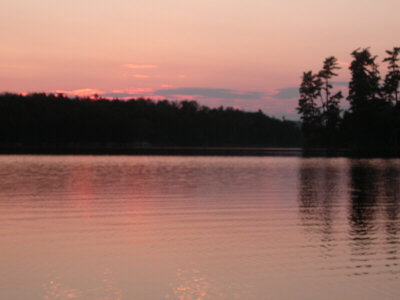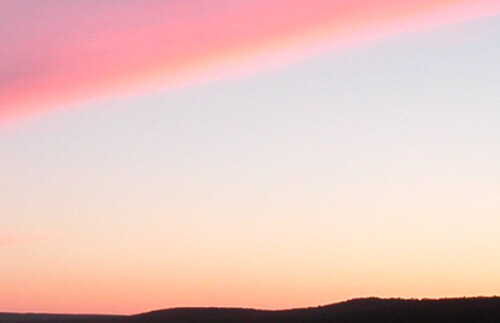 Jay Michaelson
Jay MichaelsonItís probably strange to hear that I think of myself as ďmad to liveĒ if you know that, as this issue of Zeek goes online, Iím going on a six week silent meditation retreat. Is it Ďmad to liveí to sit still for six weeks, not speaking, just watching the breath? Isnít that the death wish, not the zest for life and eros? Well, first, those impulses are two sides of the same coin, and I am so mad to live that, like the early, Buddhist Kerouac himself, I am mad to live all sides of life, including the silent, still ones. But, more convincingly (to me) was an insight I had at Burning Man, which is that to really seize the moment, to really live richly and deeply, has to mean to be present in the world instead of just in our thoughts. If youíre like me, you spend so much time thinking about how youíre reacting to a given situation that the situation itself is like a dim movie showing in a fog. To make it more vivid, I am learning to turn down the fog machine Ė to just let it go off by itself, really. Relaxing into a space still enough to see clearly.
|
Delight is the secret. And the secret is this: to grow quiet and listen; to stop thinking, stop moving, almost to stop breathing; to create an inner stillness in which, like mice in a deserted house, capacities and awarenesses too wayward and too fugitive for everyday use may delicately emerge.
Alan McGlashan, The Savage and Beautiful Country |
One can live religiously by turning up the volume of life, seeking ever more amazing experiences, or by turning down the volume of mental static, which makes mowing a lawn into an amazing experience. Both are valuable -- although the former is an endless chase that will lead to endless dissatisfaction. Radical amazement need not involve prolonged, full-body orgasms and intense, orgiastic ritual (though I highly commend those to your attention). There are many forms of poetry.
Yet when I encounter some religious people today, it is obvious to me that we are doing entirely different things with our lives. They are neither turning up the volume nor turning down the static; they are not becoming mad to live. Many of them are living in made-up dramas of gods that donít exist, sins which donít exist, rewards and punishments which donít exist, and afterlives which probably donít exist. This is a pity, and also worse than that. There is a metaphor that religion is like a finger pointing at the moon. But some religious people become so attached to that finger, they forget that thereís a moon there. Or that other fingers work just as well. They imagine themselves to be Godís only chosen people, or say that there is no way to heaven except through their Savior. And they attack, with terrorist violence or with the violence of bigotry, those who deviate from their path.
And even when they donít attack Ė I look at many of the lives of religious people I know, and I am so thankful that I got out. On the surface, we are very similar. I still keep shabbat in the halachic way, still am so shomer kashrut that I wonít eat hot food out in a normal restaurant. But I see these ritual practices as acts of love. I abstain from bacon not because I am afraid of punishment, and not because I think it is somehow unhealthy. And definitely not because it is part of the folkways of my people. I do it because I love God, and when you love someone, you do stupid things for them. There is nothing essentially sensible about bringing your lover flowers. So I donít mind that avoiding bacon makes no sense either.
Being religious or spiritual in this way is like being gay in an antigay society. You feel a love that you canít really express to most people. But you know itís real, and you know it is wonderful and holy. Itís hard to write about; every clause has a cliche hiding inside. But it is so true that it seems self-evident to someone who ďknows.Ē Itís been true, for me, my entire adult life -- I just didnít see it. I think itís also true for a lot of people who have trouble admitting it: religious people who, for some reason, go to shul; artists who seem really disaffected but, for some reason, canít stop making their art. We God-lovers are all just a little bit closeted.
 Hereís an important part: you canít really be homophobic if youíre really in love. If youíre in love, and you know what love is, truly, and if you then see two men or two women in love, how can you really think that itís evil/against nature/against God/wrong? I suppose homophobes just donít believe that gay men love each other Ė they just donít believe it. Just like an ethnocentric Jew doesnít believe a Protestant has a real religious experience. Just like any zealot. Itís easy to live in that world, where only your experiences, and those of people just like you, are real. Itís complicated to know that even people who hate us are, essentially, human. And itís painful to do so, because they donít think the same way about us. I have no illusions, for example, that Osama Bin Laden has a richer view of human potential than George Bush. Or that Pat Robertson does not experience real religious rapture.
Hereís an important part: you canít really be homophobic if youíre really in love. If youíre in love, and you know what love is, truly, and if you then see two men or two women in love, how can you really think that itís evil/against nature/against God/wrong? I suppose homophobes just donít believe that gay men love each other Ė they just donít believe it. Just like an ethnocentric Jew doesnít believe a Protestant has a real religious experience. Just like any zealot. Itís easy to live in that world, where only your experiences, and those of people just like you, are real. Itís complicated to know that even people who hate us are, essentially, human. And itís painful to do so, because they donít think the same way about us. I have no illusions, for example, that Osama Bin Laden has a richer view of human potential than George Bush. Or that Pat Robertson does not experience real religious rapture.
But whatever God is, It must be closely related to truth. People of different religions and orientations do love authentically. Can it really be otherwise? If you love God (or another person) yourself, can you really believe that other people in love are just Ė wrong?



This Land was Your Land:
A Review of Philip Roth
James Russell
Am I Religious?
Jay Michaelson
Down and Out in the Slipper Room
Joshua Axelrad
Tarnation: The Dream of Autobiography
Lauren Wilson
Money-Back Guarantee
Samantha Stiers
Sitting on an aeroplane, while Grandma Dies
Nigel Savage
Archive
Our 580 Back Pages
Zeek in Print
Fall/Winter 2004 issue now on sale
About Zeek
Mailing List
Contact Us
Subscribe
Tech Support
Links
From previous issues:
re:vision
Raphael Cohen
yom kippur
Sara Seinberg
The Spiritual Foundations of Bushism
Jay Michaelson